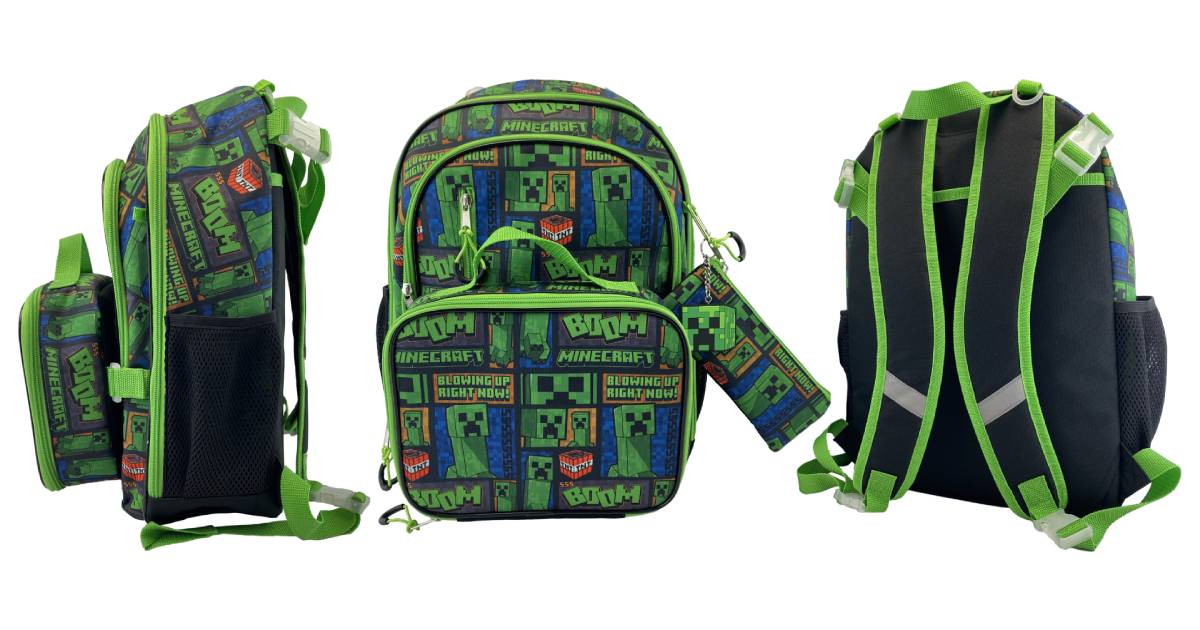
Brands Break into the Adaptive Category
By Mark Seavy
As retailers increasingly embrace adaptive products, new opportunities are emerging for brand licensing.
For example, Bioworld and Tesco each recently launched adaptive apparel across a range of entertainment brands, expanding a business that has, in the past, largely been built on private label brands.
In the case of Bioworld, the adaptive backpacks are an extension of its diversity and inclusion (DEI) program and filling a “white space” in consumer demand, said Jason Mayes, Senior Director of Marketing and Intellectual Property.
This launch followed Bioworld’s introduction of a number of adaptive products last year through Kohl’s, including a 12 x16-inch backpack under Microsoft’s Minecraft brand. The backpack features adjustable handle straps and bag hooks for attachment to a wheelchair as well as access ports for tubes and cables.
Moving forward, the company’s adaptive collection will be expanded to include distribution through Target, Walmart, and Amazon (in addition to Kohl’s) under Sega’s Sonic, Jazwares’ Squishmallows, Nintendo, Sony’s Spiderman, and Disney brands.
“We are always studying consumer trends and analyzing the market for consumer needs and pain points, and this came up as an under-served consumer segment in the licensing lifestyle product category,” Mayes said.
Tesco, meanwhile, is carrying an adaptive apparel range inspired by Thomas & Friends under its F&F Clothing private label brand. The range includes soft fabric, loose fitting t-shirts as well as jumpers and track suits. The collection, which is available through April 29, marks a renewal of Mattel’s partnership with the National Autistic Society for World Autism Acceptance Week earlier this month (April 2-8) and targets children aged one to six years.
This recent round of licensed adaptive products follows a previous wave in 2021. At that time, Jakks Pacific’s Disguise Division and NECA’s Rubie’s Costume Co. both unveiled licensed adaptive costumes. The costumes featured medical ports, magnetic closures instead of buttons, and adaptive openings at the arm sleeves, abdominal, and pant inseams for easy dressing under brands like Disney, DC Comics, DreamWorks, and Paw Patrol.
Target previously launched adaptive items under its private label Cat & Jack brand and has since been joined by J.C. Penney (Thereabouts), Kohl’s (So, Jumping Beans, and Sonoma) and Walmart (Adaptive at Walmart). And Zappos.com announced it would allow consumers to buy a single shoe rather than a pair. The global market for adaptive products is expected increase to $2.1 billion by 2030, up from $1.2 billion in 2022, according to Coherent Market Insights.
In addition to the retailers that are focused on serving this market through private label or licensed ranges, there are a number of companies that specialize in adaptive products.
Silverts Adaptive Clothing and Buck & Buck field a range of apparel while Billy Footwear recently launched a line with brand ambassador Kodi Lee—the adaptive shoes in men’s and children’s sizes feature zippers that go around the side and the toe, allowing the upper portion of the shoe to open and fold over completely. Lee, an artist who is autistic and blind, was a recent winner of America’s Got Talent. And Erica Cole, who lost a leg in a car accident, launched the No Limits adaptive apparel brand and raised $1.3 million last year from investors.
“There is something really beautiful in owning a niche,” Cole said in noting that there are 14 million people that struggle with daily activities due to a disability. “We are so early into this space, and we believe we have an opportunity to be that market and thought leader in terms of clothing for people with disabilities. There are far more people who can use our products than you might expect.”

















